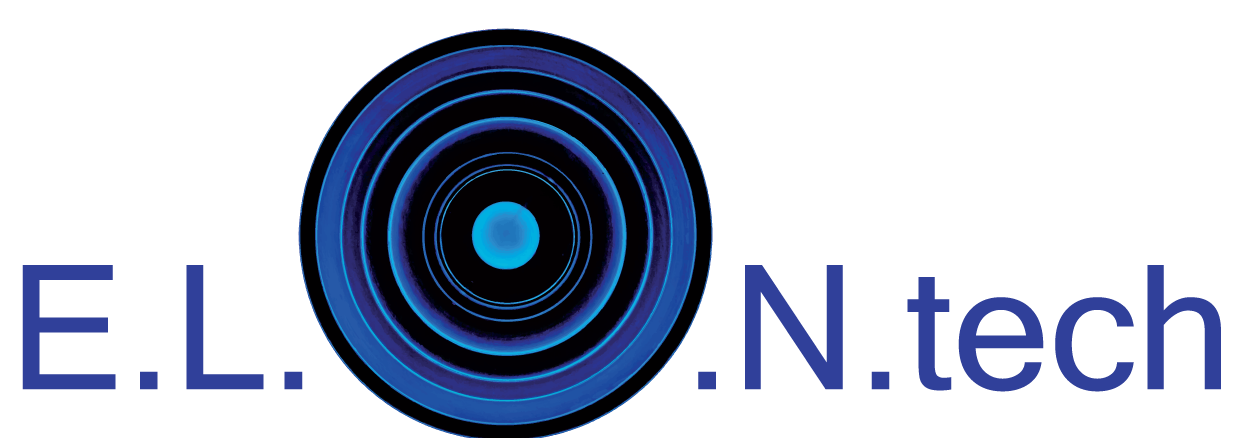AI & Rule of Law event was successfully completed
The Athens Roundtable on Artificial Intelligence and the Rule of Law, held this year on November 16-17, is the premier international, multi- stakeholder roundtable specifically focused on legal systems and the rule of law. It was co-founded in 2019 by The Future Society, IEEE SA and ELONtech, and held under the patronage of H.E. the President of the Hellenic Republic Ms. Katerina Sakellaropoulou. The roundtable seeks to advance the sound development of policies, educational initiatives and evidence-based instruments, including standards and certifications, to enable the trustworthy adoption of AI in legal systems, the practice of law, and related regulatory compliance. This year’s edition is co-hosted with UNESCO, European Parliament (STOA), the National Judicial Center, Covington & Burling, the Center on Civil Justice at NYU School of Law, H5, and the Jain Family Institute.
The two-day roundtable, hosted virtually from New York City, welcomed back many of the first edition’s participants to create continuity in purpose, but also expanded participation to the Global South, with the support of UNESCO. Approximately 1,000 attendees joined the gathering. The objective of the 2020 proceedings was to review the progress of the AI governance initiatives of key participating legislative, regulatory and non-regulatory bodies, to hear the perspectives of General Counsel and Chief Compliance Officers of global corporations and other civil society stakeholders, to exchange views on emerging best practices, to discuss the world’s most mature AI standards and certifications initiatives, and to examine those initiatives in the context of specific real-world AI applications.
Below, representatives from the co-founding and co-host organizations share their thoughts on the importance of the event and some of the critical issues to be explored there:

“The Athens Roundtable on AI and the Rule of Law 2020 is officially co-hosted by the European Parliament and its STOA panel: the Committee for the Future of Science and Technology. To intensify its activities in the field of artificial intelligence, STOA launched its Centre for AI (C4AI) in January 2020. STOA and its C4AI are planning to cooperate and exchange expertise with stakeholders and partners within the Parliament, the global parliamentary community and beyond. Issues like how societies will safeguard citizens’ digital human rights will be of utmost importance in the coming years. The rule of law will have to be synonymous with governments and big corporations respecting these rights and not being able to use AI technologies for gaining access to citizens sensitive personal data or using perception manipulation techniques for that end.”
Eva Kaili, STOA Panel for the Future of Science and Technology, European Parliament

“People around the world feel first-hand on a daily basis how AI impacts their daily lives, their industry, and the legal system. Many less understand the ways in which the AI technological and regulatory landscape will determine how our human rights will be respected in the digital era. At UNESCO, we are committed to ensuring that all stakeholders are empowered not only to understand the issues at hand, but act to protect the rule of law. On the occasion of the Athens Roundtable 2020, UNESCO launched the development of a massive open online course dedicated to training judicial operators on AI and the rule of law. This course, a direct response and outcome of the Athens Roundtable 2019, is developed in cooperation with the IEEE and CETIC.br, among other partners, to strengthen capacities of judicial operators to address AI-related issues, ensure that judicial operators are equipped with the necessary information concerning AI-based predictive justice systems, and ensure that prosecuting services, in AI related cases, are aware of the rule of law as it concerns AI technology and correlated risks.”
Sasha Rubel, Programme Specialist, Digital Innovation and Transformation, UNESCO

“The rule of law is the bedrock of democracy. It is guaranteed by the separation and balance of power. Too often we see the imperative to digitally augment government strictly through the lens of the executive branch, i.e. public administration. As a result the two other branches of government, while essential, remain largely underserved in the AI revolution. To project our democracies into the 21st century it is imperative to spend much more energy on the responsible adoption of AI in the legislative and the judiciary, building capacity, competence, and standardization. This is critical to ensure that societies capture the upsides of AI while minimizing its downsides and risks”.
Nicolas Miailhe, The Future Society

“The mission statement of The National Judicial College is one sentence with two parts. Part 1 commands the College to work to “make the world a more just place.” Part 2 says “by educating and inspiring the judiciary.” We care more about accomplishing No. 1 than we care about limiting our activities to No. 2. It is undeniable that AI has the potential to improve legal work and judicial decision-making. But at this point its applications remain mostly that, potential, with significant potential hazards. We support all means of progress toward a more just world. These discussions during the Athens Roundtable will help chart the way forward for technologies that hold so much promise. We are grateful for the opportunity to participate, and we look forward to educating and inspiring judges in how to apply these potentially powerful new tools”.
Hon. Benes Z. Aldana (Ret.), The National Judicial College

“ELONTech is excited to be part of the co-organizers team for the second consecutive year. ELONTech works for the better understanding of the developments that the digital revolution has brought about, the consequences for the professionals of law and tech and for the society at large, while also promoting the inclusion of fairness and ethics into the exponential progress of technology, especially AI. The outcomes of this Roundtable will shed light on the direction that we allowed to give to the rule of law, where applied. This direction shall define the new reality of the generations to come. What we need to do to examine all angles of AI application and Justice transformation, is to ask the right questions and find new names for the new social contract that will be agreed.”
Mantalena A. Kaili, ELONTech

“When algorithmic systems are used to support or even to fully assume the function of the decision making process in legal questions directly affecting a human destiny, then enhanced scrutiny is necessary. Black box algorithms, possibly developed on the basis of legacy – and thus inherently biased – data, and with no clear chain of accountability should be considered as unacceptable. So, the concrete question boils down to how we can assess the quality of such computer-based decision supporting systems, with regard to their level of transparency, to the provision of a meaningful scheme of accountability and to assurance of minimisation of bias”.
Konstantinos Karachalios, IEEE

“We look forward to contributing to the important dialogue on how to translate AI principles into policies and practices. Our global and multi-disciplinary Artificial Intelligence Initiative helps organizations achieve their AI objectives in the evolving legal landscape by providing advice in many areas including policy matters, AI and data governance, product counseling, compliance and risk management, privacy, intellectual property, trade controls, procurement, and transactions and other corporate matters.”
Lee Tiedrich, Covington & Burling LLP

“The use of artificial intelligence in both the public and private sectors brings both transformative possibilities for making the world a better place and unprecedented risks to civil and human rights, economic, racial, and environmental justice, and democratic legitimacy. By bringing technical and non-technical stakeholders — lawyers, policymakers, advocates, engineers, industry leaders, ethicists, and more — from around the globe together to develop capacity to anticipate, recognize, and respond to the challenges and opportunities this new world brings, the Athens Roundtable is doing vital work; JFI is proud to be a collaborator and sponsor.”
Jerome Hodges, Jain Family Institute

“The Center on Civil Justice is proud to be a co-host of this, the second Athens Roundtable. We were also a partner in the first Athens Roundtable. The goals of these Roundtables coincide with the central mission of the Center, to foster the rule of law in a democratic society and to find practical and effective ways to ensure that AI is adopted in a trustworthy manner not just in the US but internationally. To those ends, beginning before the first Athens Conference, we have engaged many stakeholders — regulators, practitioners, judges, general counsel’s offices, compliance officers, and procurement departments — bringing them together at one of the premier academic institutions in the US to discuss the issues and find sensible solutions”.
Peter Zimroth, Center on Civil Justice at NYU School of Law

“I’m thrilled to help convene prominent representatives from industry, academia, think tanks, the judiciary, and regulatory bodies focused on ensuring the trustworthy adoption of artificial intelligence in legal and compliance functions in industry, the practice of law, and the institutions of state, including the judiciary. Such adoption is predicated on a thorough examination of the effectiveness of AI systems and the expertise of their operators in these high risk domains. The Athens Roundtable seeks to make a concrete contribute to the development of evidence-based standards and certifications in this respect.”
Nicolas Economou, H5
